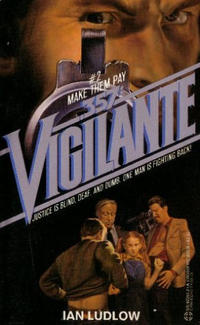I mentioned here that I spoke last week at the Cologne Conference and that my topic was what the German TV industry could learn from the American methods of writing and producing episodic drama. In a comment to that post, Richard Cooper asked:
I was wondering if you could write about how the Germans are doing it, and what the American method would change if adopted over there.
The five highest rated hour-long shows in Germany are DR. HOUSE, CSI MIAMI, MONK, CSI and ALARM FOR COBRA 11. The only German show in the bunch is COBRA 11, which is going into it’s 13th season. COBRA 11, as successful as it is, is still a distant fifth at half the audience of CSI. The nearest German show is ranked eighth, and that is TATORT, which has been on the air there even longer than COBRA 11. The new German shows are simply tanking.
American shows dominate there — and all over Europe — even though they are dubbed, set in different places with different cultures, languages, and political, legal and health care systems. The audiences don’t care about those differences. They love the shows anyway.
I believe the American shows are succeeding not because they have higher budgets and bigger stars or brighter sunshine…it’s because they have instantly identifiable franchises with sharply drawn characters that transcend cultural differences. They work because they are the same show every week, year in and year out, only different. That last part sounds like a contradiction, but it’s not. They are consistent. People know exactly what they are going to get.
What I told them is that they can just continue to sit back and air American shows in German…which would be a tragedy for German writers and audiences… or they can make shows that can compete. How do they do that? I said the key to American success is franchise, consistency, and the showrunner/writers room system. I then went on to explain what franchise is, what I mean by "consistency," and how the showrunner system works.
The problem with cop/drama shows in Germany is that the shows are indistinquishable from one another. They all look and sound the same (it’s like color TV hasn’t been invented here). They aren’t distinct. They also aren’t consistent. And the story telling is insanely dull.
The German viewing audience doesn’t know about franchise and the four act structure, but they have watched enough American TV to internalize it…to feel that it is missing from German shows. And they don’t like it.
The franchise problem aside (and it’s a big one), German shows aren’t run by writers and have no writing staffs…they are run by line producers and network program "editors" and are freelance written. To make matters worse, every week a different director comes in…and he brings his own director of photography, assistant director, and film editor. And the director is free to rewrite the script himself. The director also is in charge of the post-production of his episode…from the cut to the mix. So there’s no one looking out for the show…there is no one maintaining and protecting the franchise…not that there is usually a clear franchise to protect. (I believe that one big reason that COBRA 11 has done so well is that it’s the one German show with a distinct, unmistakeable look and franchise)
American shows kick ass there because of how they are conceived, written and the produced. It’s the way the scripts/stories are structure (the four act structure, conflict, etc.). They don’t the four-act structure…in fact, they have no consistent dramatic structure to how TV stories are told.
The conception and writing part doesn’t cost more money…it’s just a philosophical and creative change in how they approach developing shows and telling stories. That can easily be taught. The producing aspect does cost more money…it means paying writers salaries for their exclusive services for the run of the series (and doing the same for the DPs, ADs and editors)….and it means limiting the power and influence of episodic directors. It means making a major paradigm shift in how episodic dramas are made there…and that can’t be done overnight. They also argue they don’t have writers yet who are capable of running shows and that directors won’t accept giving up the power they now have.
On top off that, there isn’t a big financial incentive to change the way things are done there. It costs the networks $200,000-an-episode to buy an American show and three or four times that much to make an episode of an original German series (they don’t have the unions, residuals, etc that we have here)….so, increasingly, the attitude has become "why bother?"
That said Proseiben, one of the big networks there, is now insisting that German shows develop their episodes in a Writers Room. They aren’t paying for staff writers… but they are bringing the writer of the pilot together with a group of freelancers for a couple of weeks in one room to develop the stories for the first season. They haven’t put writers in charge yet, nor have they limited the power of episodic directors to change everything about the show, but it’s a step in the right direction.
 Remember the clueless morons at the Colonial Fan Force? Well, this is even better. Now that NBC has announced they’re developing a new KNIGHTRIDER — although I suspect the 30% dropoff in week two of BIONIC WOMAN might put a little damper on that — a team of fans has sprung up to defend the Glen Larson/Weinstein feature version that’s been in development. The best part of their idiotic campaign has got to be their logo:
Remember the clueless morons at the Colonial Fan Force? Well, this is even better. Now that NBC has announced they’re developing a new KNIGHTRIDER — although I suspect the 30% dropoff in week two of BIONIC WOMAN might put a little damper on that — a team of fans has sprung up to defend the Glen Larson/Weinstein feature version that’s been in development. The best part of their idiotic campaign has got to be their logo:





